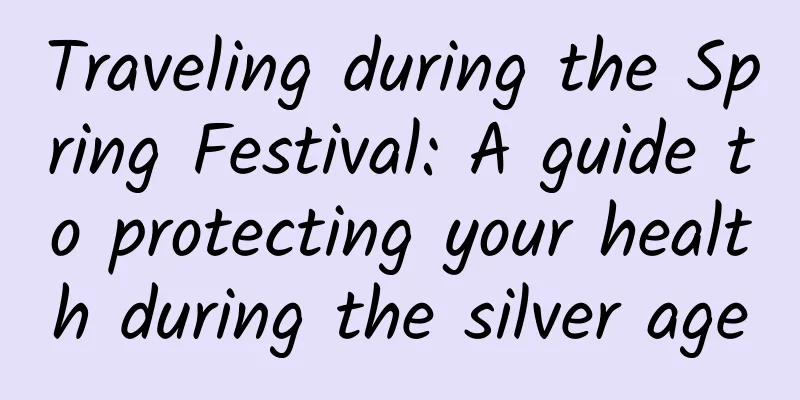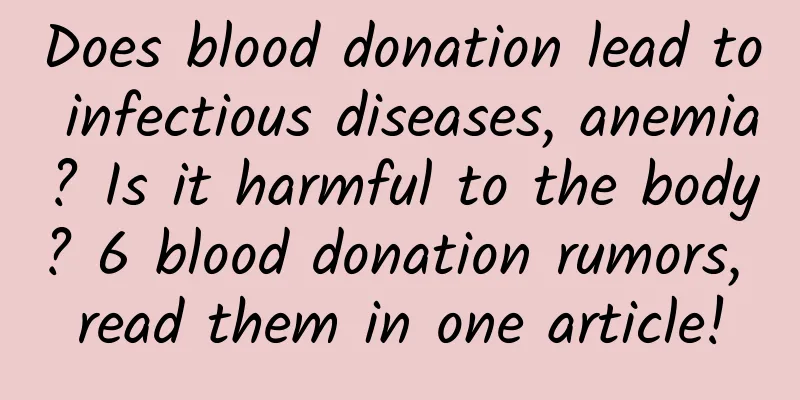Before getting vaccinated, read this article first | World Immunization Week

|
The last week of April every year is World Immunization Week, and this year's theme is "Vaccines Bring Us Together." Building the human immune system is inseparable from the help of vaccines. Can vaccination provide lifelong protection? Can you still get vaccinated if you have allergies? What is the "Internet celebrity" HPV (human papillomavirus) vaccine that can prevent cancer? 8 issues you care about The answers are all here ↓↓↓ Q1. Can vaccination provide lifelong protection? Recalling the fear of injections when we were young, many people wish they could be cured with one shot. However, not all vaccines are long-lasting, and different vaccines have different "expiration dates". For example, measles vaccine and hepatitis B vaccine may provide lifelong immunity after a full course of vaccination. Some common vaccines such as tetanus toxoid and influenza vaccine may not produce lifelong immunity and may need to be re-vaccinated due to decreased immunity or changes in the virus structure. Q2. Can I get several vaccines at the same time? It depends on the situation! There are many vaccines that can be given at the same time, and relevant studies have proven that there will be no adverse consequences. Some vaccines cannot be given at the same time. Q3. Can I get vaccinated if I have allergies? During the catkin season, or after contact with small animals such as cats and dogs, or after eating certain foods, many people will experience allergic symptoms such as tears, runny nose, and itchy skin. The question of whether or not to vaccinate for allergies cannot be generalized. Generally speaking, people with a history of immediate hypersensitivity reactions to certain vaccine components should not be vaccinated. Please consult a medical professional before vaccination. Q4. Will I not get cervical cancer if I get the HPV vaccine? The best prevention strategy for cervical cancer is to get the HPV vaccine and undergo regular cervical cancer screening. To achieve the best prevention effect, both are indispensable. Women aged 9-45 should get the HPV vaccine as early as possible. All HPV vaccines currently on the market cannot 100% prevent all cervical cancers, so vaccination cannot replace cervical cancer screening for women aged 30 and above. Regular cervical cancer screening can detect viral infections or precancerous lesions and treat them, thereby avoiding the occurrence of cervical cancer. Q5. What is the best age to get the HPV vaccine? HPV is mainly transmitted through sex, and the first infection usually occurs shortly after the first sexual intercourse. Therefore, the best effect of HPV vaccination is to vaccinate women before they have sexual intercourse. The World Health Organization recommends that 9 to 14 years old is the golden age for HPV vaccination. Clinical studies and years of application have also confirmed that adult women can also be protected by HPV vaccination. Q6. How does the HPV vaccine work? Is it safe to get vaccinated? The antigens in the HPV vaccine can stimulate the body's specific immune response and produce antibodies against HPV. Different HPV vaccines have different adjuvants. The use of innovative adjuvants can stimulate the body to produce higher levels of protective antibodies, and the durability of protection against the disease is also supported by scientific research data. HPV vaccines have been on the market for more than a decade worldwide and have been included in immunization programs in more than 120 countries and regions, with tens of millions of women successfully vaccinated. Data show that full HPV vaccination can provide women with long enough protection, and there is no doubt about the effectiveness and safety of the vaccine. Q7. I have not been able to get an appointment for the high-priced HPV vaccine yet. Should I continue to wait? Delaying vaccination may increase the risk of HPV infection for some women and reduce the benefits of vaccination, which is not worth the cost. Studies on HPV vaccines show that young women have a stronger immune response to vaccines than adult women. Experts recommend that HPV vaccines should be administered as early as possible to achieve better protection. Cervical cancer can only be eliminated if women of appropriate age are vaccinated as early as possible and the HPV vaccination coverage rate is increased, rather than blindly pursuing high-priced vaccines. Q8. Can I still get the HPV vaccine if I have been infected with HPV? Evidence shows that women who have been infected with HPV can still receive HPV vaccination. Women with a history of HPV infection or who have received local cervical treatment can also benefit from HPV vaccination to reduce the incidence of HPV-related diseases. (Source: Healthy China) |
>>: What happens when alcohol burns? How long does it take for alcohol to evaporate?
Recommend
When is the best time to travel to Sanya? What's the weather like in Sanya?
Sanya has a coastline of 209.1 kilometers, 19 har...
Subtle signs of early pregnancy
When women are in different situations, their bod...
How many days does it take for mastitis to heal?
We all know that mastitis can be divided into sub...
Is it advisable to drink brown sugar water after giving birth?
Postpartum mothers need to adjust their bodies we...
How to treat early breast hyperplasia?
Fibrocystic breast disease is a very common breas...
Can I drink green tea when my period is coming?
Can I drink black tea during menstruation? First ...
How to lose weight quickly and effectively after menstruation
After menstruation is a good time for women to lo...
The best time to conceive
Children are our hope and future. Everyone wants ...
Postpartum pain in the buttocks
The confinement period after giving birth is very...
Can a ketogenic diet treat epilepsy?
Epilepsy is a common neurological disease. During...
What kind of beer is easy to get drunk? Can I drink beer that has been left overnight?
Since 3000 BC, Egyptians have started to use bitt...
What kind of bedroom door is good? What kind of bedroom door is good?
We all know that the bedroom is an important part...
Ovulated last night and had sex tonight
Women have a high chance of getting pregnant duri...
Black discharge after induced abortion
In fact, induced abortion has nothing to do with ...









